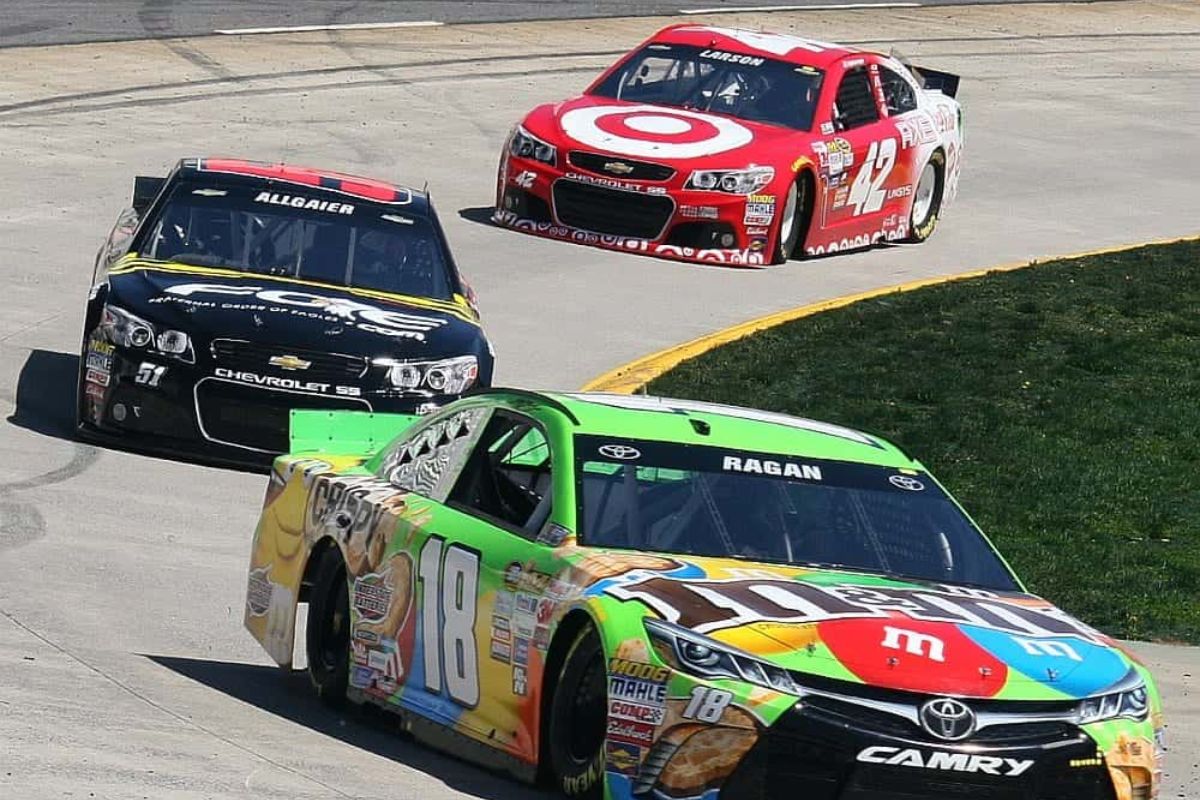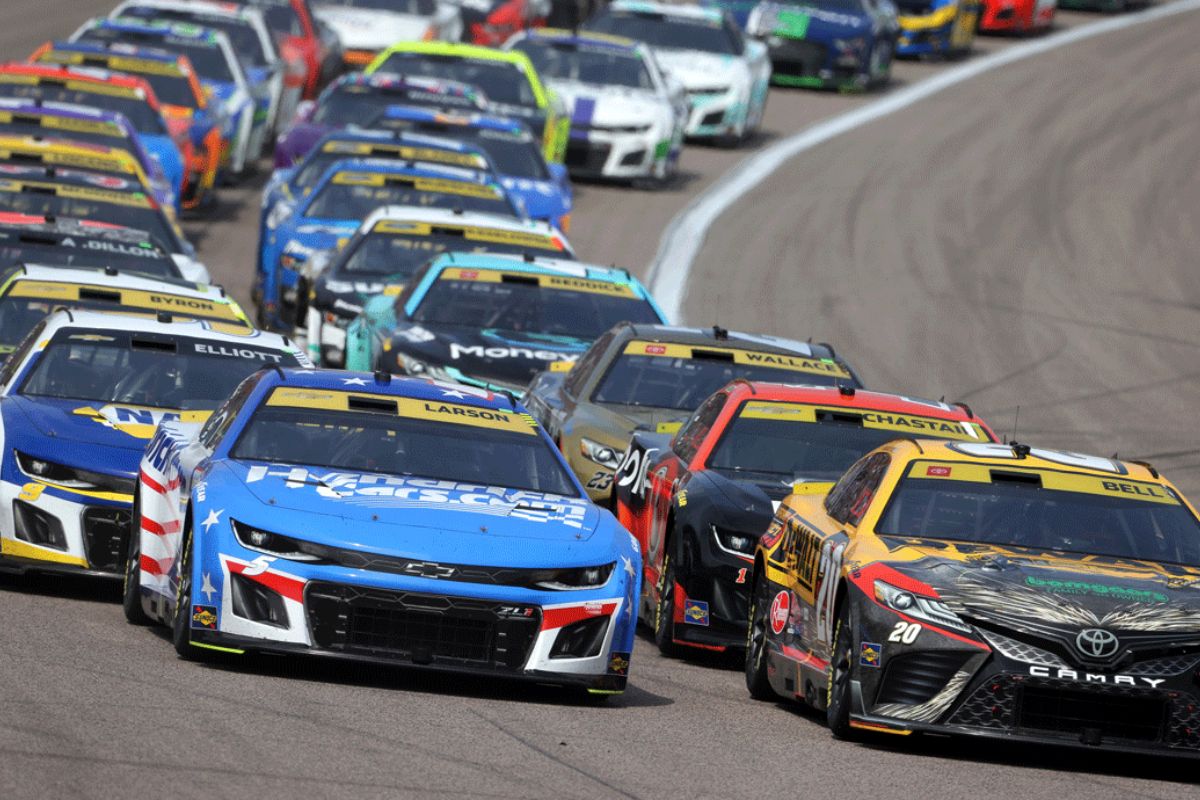FOX’s Martinsville Wreck Coverage Falls Short: In a recent oversight that has ignited fervent discussions among NASCAR enthusiasts, FOX Sports’ handling—or rather, mishandling—of the Martinsville wreck, especially involving Brad Keselowski among others during a critical overtime phase, has spotlighted a significant shortfall in sports broadcasting. This incident, left unaired, not only robbed fans of comprehending crucial race developments but also raised questions about the alignment of broadcast strategies with audience expectations in the world of motorsports. As criticisms mount over FOX Sports’ apparent neglect of the intricate teamwork, strategy, and perseverance that define NASCAR, one must ponder the broader implications of such broadcasting decisions on the viewer experience and the sport’s portrayal. What could this signal for the future of motorsports broadcasting?
Key Takeaways
- FOX Sports missed broadcasting a critical incident involving Brad Keselowski during a NASCAR race at Martinsville.
- The omission of the three-car collision in overtime left fans and viewers frustrated, questioning the integrity of the race coverage.
- Fans expressed their dissatisfaction on social media, criticizing FOX for not meeting expectations for thorough and insightful NASCAR coverage.
- The lack of detailed coverage on the incident reduces the importance of crucial moments in motorsport storytelling and fan engagement.
- This oversight has sparked calls for FOX Sports to revisit and improve their broadcast strategies to align with audience expectations for comprehensive race coverage.
FOX Sports Faces Backlash Over Missed Overtime Incident
Why has FOX Sports’ recent oversight during the Martinsville NASCAR Cup Series race, specifically missing a pivotal overtime incident, sparked such significant backlash from the motorsports community? This question gets to the core of why fans are frustrated and what it means for sports broadcasting overall. Motorsports, by its very nature, is a sport of moments—fleeting, critical instances that can define the outcome of an entire race. When a broadcaster misses such moments, it doesn’t just disappoint fans; it reduces the viewing experience, compromising the integrity of the sport’s narrative.
In the context of the Martinsville race, the incident in question was not merely a minor mishap but a significant event that occurred during a highly anticipated overtime period. Overtime in NASCAR is a climax of sorts, a final showdown where tensions are high, and the stakes are even higher. Missing such an incident is not just an oversight; it is a failure to capture the essence of what makes motorsports so exhilarating.
The backlash from the motorsports community is not merely a reaction to a missed moment but a critique of a recurring issue within sports broadcasting. FOX Sports, despite its experience and resources, has been consistently criticized for such oversights. This particular incident at Martinsville has become a flashpoint, shocking fans and stakeholders who demand a viewing experience that matches their passion and understanding of the sport.
Unaired Overtime Incident Involving Brad Keselowski
In a significant oversight during the NASCAR Cup Series race at Martinsville, FOX Sports failed to broadcast an essential overtime incident involving Brad Keselowski, where a collision involving three cars went unaired, raising substantial concerns among viewers and stakeholders in the motorsports community. The incident, occurring in overtime racing, not only involved Keselowski but also implicated two other vehicles in a scenario suitable for analysis and discussion. The brief emergence of the caution flag before a swift return to green flag racing highlights the incident’s potential impact on race outcomes and driver strategies.
The absence of coverage for such a crucial moment highlights a disconnect between broadcast priorities and the detailed storytelling expected by the audience. This oversight may suggest a need for revisiting broadcast strategies, particularly in the dynamic and often unpredictable context of NASCAR racing.

Fans Outcry Over Poor Presentation
The fans’ response to FOX Sports’ coverage of the Martinsville wreck, particularly the omission of an important overtime incident involving Brad Keselowski, has been overwhelmingly negative, highlighting a significant disconnect between viewer expectations and the presented broadcast content. The revelation of Keselowski’s involvement and the extent of the damage to his #6 car came to light not through the expected channel of FOX Sports’ broadcast, but rather through a social media post by Roush Fenway Keselowski Racing. This incident emphasizes a broader issue within sports broadcasting – the prioritization of narrative over detailed event coverage.
Analyzing the outcry, it becomes apparent that the essence of fan frustration lies not just in the missing footage but in what this omission represents: a perceived negligence towards the integrity of sporting journalism. The role of a sports broadcaster, particularly in a sport as dynamically unpredictable as NASCAR, is to provide a thorough representation of events as they unfold. This includes not only the victories and defeats of the leading contenders but also the trials faced by every participant in the field.
So apparently Brad was in that OT wreck pic.twitter.com/OFVgYtY1vD
— RFK Racing (@RFKracing) April 7, 2024
The failure to broadcast Keselowski’s overtime wreck not only deprived fans of a complete understanding of the race’s outcome but also diminished the visibility of the teamwork, strategy, and resilience inherent in motorsports. It raises critical questions about the criteria used to determine broadcast content and whether these criteria serve the sport’s narrative or its loyal audience.
“Didn’t even see this one tv nor was it announced what the caution was for.”
“Remember when there was good broadcast coverage and replays of what happened everywhere.” – (A fan on X)
FOX Sports Faces Fan Wrath
Facing a barrage of criticism, FOX Sports finds itself at the center of fan discontent following its handling of the Martinsville wreck coverage, sparking a debate over the integrity of sports broadcasting. The network’s apparent failure to adequately cover significant moments of the race, including a lack of replay and detailed coverage of the incidents, has led to widespread dissatisfaction among NASCAR enthusiasts.
Fans have taken to social media to express their frustration, highlighting the lack of transparency and communication from the broadcast team during important moments of the race. These sentiments point towards a growing expectation for sports broadcasters to provide thorough and insightful coverage that enhances the viewer’s experience.
Fans’ expectations are evolving, demanding not just coverage, but coverage that is engaging, informative, and respects the viewers’ desire for a thorough understanding of the event. As FOX Sports navigates this wave of criticism, the network faces the challenge of reconciling with its audience’s expectations and setting a new standard for the quality of sports broadcasting.
“No replay from the shams of @NASCARONFOX once again. Even tho bowyer/harvick mentioned it,”
“Too bad it wasn’t broadcast on TV where they could have shown it @NASCARONFOX,” – (A fan on X)
News in Brief
The oversight by FOX Sports in failing to broadcast the critical overtime incident involving Brad Keselowski and three other vehicles at Martinsville has highlighted a significant gap between broadcast strategies and viewer expectations within the NASCAR community.
This incident has not only pointed out the need for broadcasters to reassess their coverage priorities but also accentuated the importance of aligning with the audience’s desire for in-depth insights into the intricacies of motorsports strategy and teamwork.
Our Reader’s Queries
Q. Has NASCAR lost a lot of fans?
A. According to recent reports from The Sport, the 2023 NASCAR Cup Series season saw an average viewership of 2.86 million across FOX, FS1, NBC, and USA Network. This marks a 5% decline from the previous year’s average of 3.03 million viewers. Additionally, it represents the lowest viewership recorded for a season in NASCAR history.
Q. Why is NASCAR not as popular?
A. Factors contributing to this decline in viewership include the track alterations mentioned earlier, the controversial introduction of the Car of Tomorrow, which faced criticism from both drivers and fans, ongoing adjustments to championship rules and race formats, shifts in the overall race day experience, and perceptions of diminished racing quality.
ALSO READ: FOX Sports’ Yet Another Blunder: Fans React to Broadcasting Error


